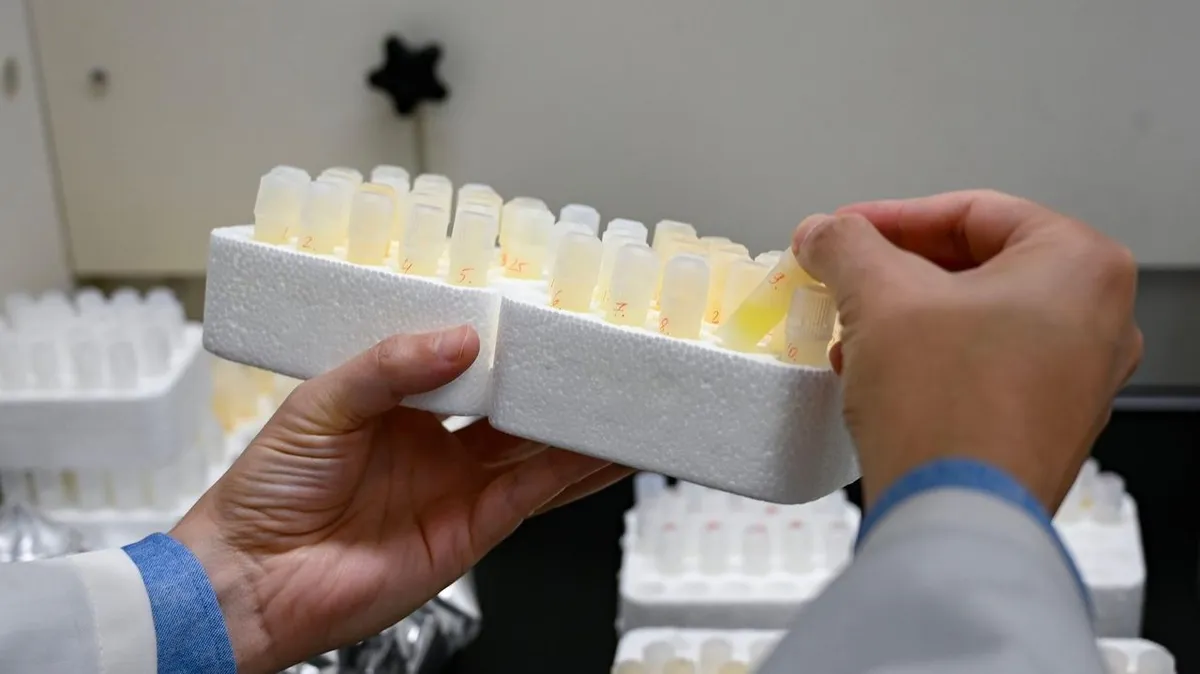
A groundbreaking study from Harvard Medical School has discovered a significant link between the loss of the metal lithium and the onset of Alzheimer’s disease, igniting a spark of hope among advocates on Long Island. This extensive seven-year research could pave the way for earlier detection of Alzheimer’s, new treatment options, and a deeper understanding of the human brain, according to the findings presented by researchers.
The study has been described as "the most hopeful thing that we've had in a while" by Tori Cohen, the executive director of the Long Island Alzheimer's and Dementia Center in Westbury. She emphasized the importance of this type of information and urged for immediate action. Similarly, Lauren Vlachos, executive director of the Alzheimer's Disease Resource Center in East Islip, characterized the findings as an "exciting moment in Alzheimer’s research," highlighting the potential for renewed hope in treatment and prevention.
Vlachos further stressed the necessity of ongoing funding for research and the urgent need to transition these promising findings into clinical trials. "Discovery is only part of the equation," she noted, underscoring the importance of practical application in real-world settings.
Despite the excitement surrounding the study, Dr. Marc Gordon, chief of neurology at Northwell’s Zucker Hillside, North Shore University Hospital, and Long Island Jewish Medical Center, cautioned against premature enthusiasm. He warned that the study's preliminary nature means individuals should not rush to take lithium pills without proper guidance. "I'm concerned that people are going to completely misinterpret it and think that they've got to start popping lithium carbonate and get toxic," he stated.
Led by Dr. Bruce A. Yankner, a professor of genetics and neurology at Harvard Medical School, the study revealed that researchers successfully reversed Alzheimer’s-like changes in mice using small amounts of the compound lithium orotate. This dosage mimicked the natural levels of lithium found in the brain, showcasing the compound's potential. The findings were published in the scientific journal Nature on Wednesday.
Matt Kaeberlein, former director of the Healthy Aging and Longevity Research Institute at the University of Washington, who was not involved in the study, expressed optimism about the findings. He noted that because lithium orotate is inexpensive, it should lead to rapid, rigorous, randomized trials. "It will be an embarrassment to the Alzheimer’s clinical community if that doesn’t happen right away," he remarked.
Dr. Yankner also advised caution, stating, "I do not recommend that people take lithium at this point, because it has not been validated as a treatment in humans." He acknowledged that results can vary significantly from animal models to human applications, emphasizing the need for further validation by other laboratories.
Despite the challenges, Cohen remains optimistic. She pointed out that the research conducted on mice should not dismiss its potential implications for human application. Alzheimer’s disease, a severe form of dementia, affects memory, thinking, and behavior, with over 7 million people in the United States aged 65 and older currently diagnosed. According to the Alzheimer's Association, this number is projected to surge to nearly 13 million by 2050.
While recent breakthroughs in treating Alzheimer’s have emerged, a definitive medication to halt or reverse the disease remains elusive. Interestingly, lithium is often prescribed for patients with bipolar disorder, and prior studies have suggested its potential benefits for Alzheimer’s patients and even as an anti-aging treatment. A notable 2017 study conducted in Denmark indicated that the presence of lithium in drinking water might be correlated with lower incidences of dementia.